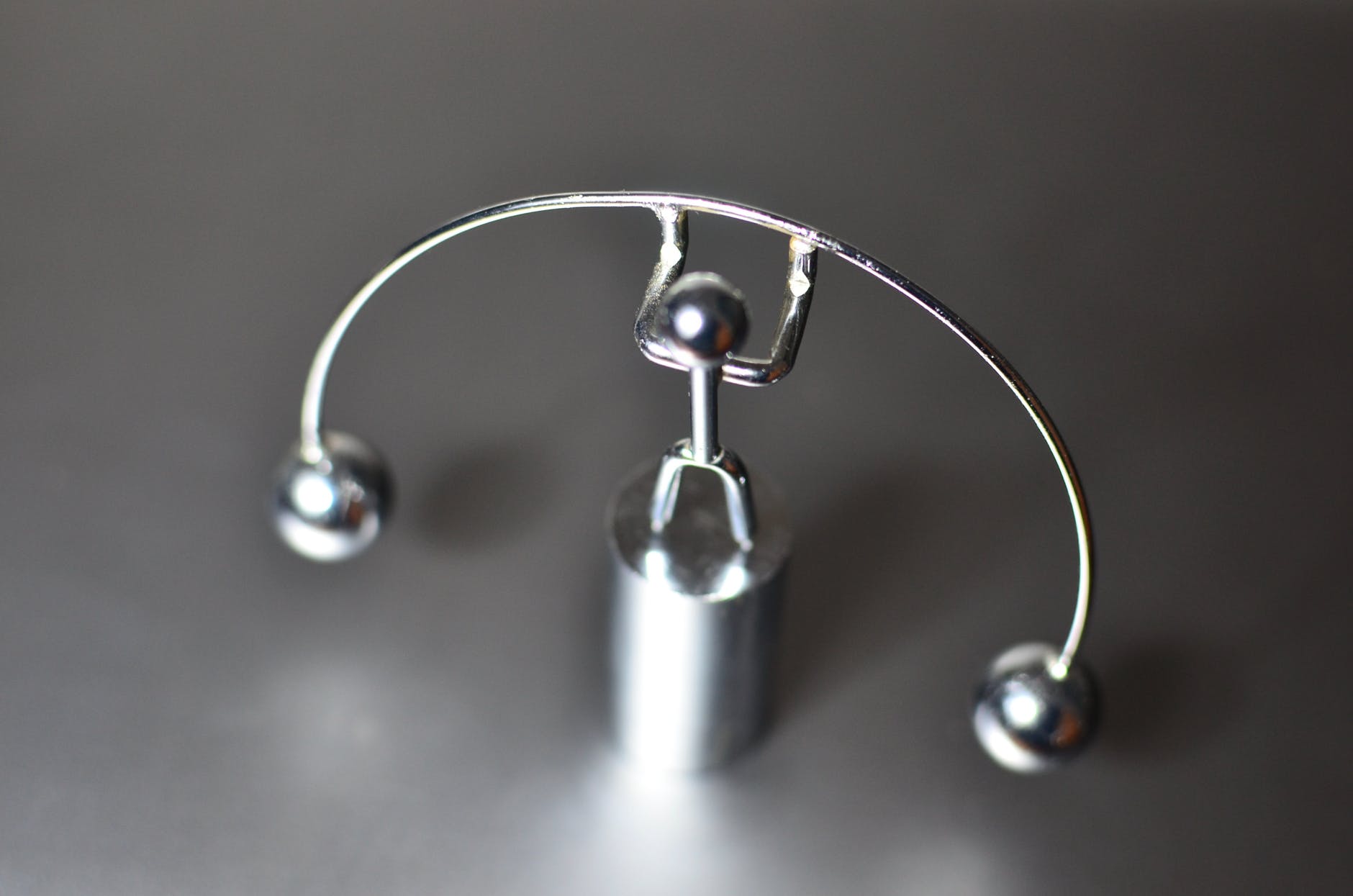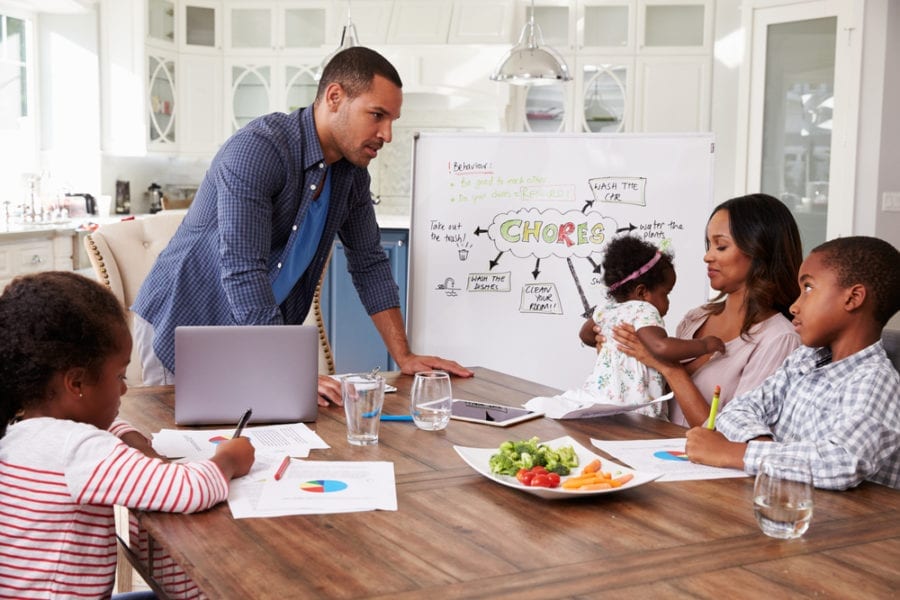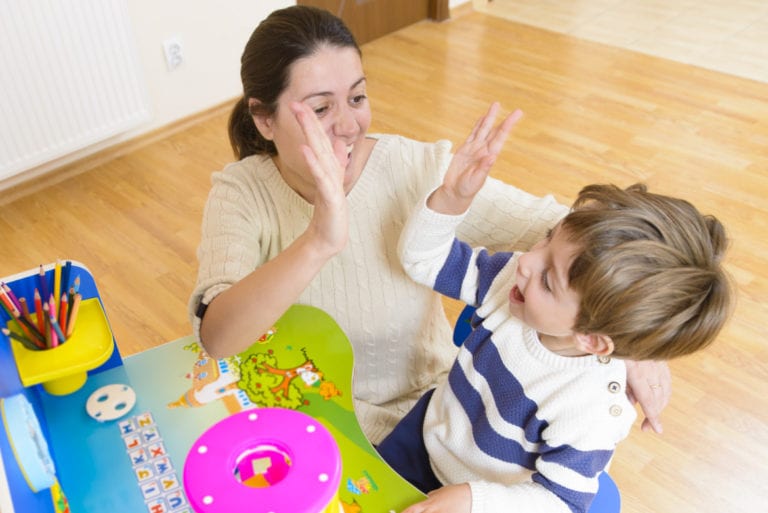What is Democratic Parenting?
Disclosure: This post may contain affiliate links, meaning I may get a small commission if you decide to make a purchase through my links, at no cost to you.
Raising kids is difficult especially when there are so many challenges today with the lack of self-confidence, self-esteem, and frequent power struggles in older children and temper tantrums as well as power struggles in young children.

It seems like children today are moving in opposite directions from what we were taught growing up. Most of us had either permissive parents, where there was little to no demand on us, and dealt with natural consequences; to the opposite: authoritative parents who ruled the roost.
Kids today are dealing with the mental health issues caused by cyberbullying, and the constant comparison of celebrities and friends who seem to have it all. Children learn that they are not worthy or good enough. The challenges facing tweens, teens, and young adults today are mind-blowing.
It is more important than ever before in child-rearing that parents foster a connection with each child and offer a positive example in the social development of each child in preventing behavioral issues.
There are several types of parenting styles. We will talk a little about each. They include the authoritative parenting style, the democratic parenting style, and the third style is the permissive parenting style. There is also pendulum parenting that happens when parents swing from one style of parenting to another.
Authoritarian Parenting
The authoritarian parenting style is characterized by high levels of demand and low levels of responsiveness. Authoritarian parents are often described as “strict” or “rigid.” Similar to the Tiger Mom style. They have high expectations for their children’s behavior, and they enforce these expectations with clear rules and consequences.

Children who are raised with authoritative parents often have difficulty thinking for themselves and making decisions. They may also struggle with anxiety and depression, as well as other mental health issues. Additionally, these children may have trouble relating to others and forming attachments. Family life can be difficult for a child’s self-esteem when they have no say in the decision-making process.
Permissive Parenting Style
Permissive parenting is a style of parenting in which parents are very lax and allow their children to pretty much do whatever they want. This can be harmful to children because it doesn’t teach them how to deal with rules and limits, and they may end up acting out in destructive or problematic ways.

Pendulum Parenting Style
Pendulum parenting is a term that has been used to describe the back-and-forth swings in parenting styles that have occurred over the past few decades. On one end of the spectrum is the authoritarian style, a strict and demanding parent who expects her children to achieve high levels of academic and athletic success.

On the other extreme is the permissive parent, who takes a more laissez-faire approach and allows her children to roam freely, without much structure or supervision. Parents tend to give their children free range of the house, activities, and even rules.
An example of pendulum parenting. You have demanded that your son come out of his room and join you for dinner or you are going to not let him have screen time tomorrow. Then tomorrow he gets mad and yells at you because he needs to do homework on the computer. So you give in to those demands. That is pendulum parenting.
In recent years, there has been a shift back towards the authoritarian parent, as parents seek to give their children every advantage in an increasingly competitive world.
What is Democratic Parenting
Democratic parenting is a positive parenting style that encourages children to be independent and think for themselves. It allows for all family members to have a voice in planning and making decisions as a group.

Democratic parents work together with children to avoid power struggles by including them in getting children’s opinions about everything from rule-making, to family decisions, and making their own decisions based on love and mutual respect. It is focused on a mutually respectful environment.
In the democratic household, parents believe that their children are capable of making good decisions, and should be allowed to do so. This type of parenting style can be challenging, but it can also lead to strong, confident kids who can advocate for themselves. If you’re interested in trying democratic parenting, here are a few tips to get you started.
Practice Democratic Parenting: Examples in Offering Choices
The democratic parents work collaboratively with their children to make decisions that affect the family. This democratic parenting values communication and negotiation and often results in children who are responsible and aware of the needs of others. Here are some tips on talking to your kids so they will listen.

Democratic parenting also typically involves setting clear guidelines and expectations for behavior, while still allowing children some degree of autonomy.
One example of the democratic approach is giving children choices. For example, when you are setting the table with your toddler, and you put the pink plate in her spot more often than not she throws a fit.
A power struggle will be avoided if you give the child a choice before you even begin setting the table by asking, “Which plate would you like, the pink one or the purple one.” It isn’t about giving your child’s demands. It is empowering our children. Children receive the message that they matter.
Power struggles ensue when a child needs his emotional bucket filled. Allowing them to have a say in decision-making can help them feel empowered and respected, and also teaches them about democracy and how to make decisions cooperatively.
It’s important to provide clear guidelines and expectations so that children understand the limits of their choices. Parents should be prepared to compromise if necessary.
Ultimately, democratic parenting can help foster a strong parent-child relationship built on communication and mutual respect.
Ideas for Positive Family Time:
Teaching Games to Play Without Electronics
Staycation Ideas for the Whole Family
Family Night Ideas Plus FREE Printable
Inside the Democratic Parenting Style – Rulemaking
There is no one answer to this question as democratic parenting styles can vary considerably from family to family. However, in general, democratic parenting may be said to involve a focus on open communication and negotiation between parents and children, with an emphasis on mutual respect and equality.

In many families, democratic parenting also includes elements of shared decision-making, whereby children are given a say in family matters such as bedtime, screen time, and rules around the house.
An Example of Democratic Parenting In Establishing Curfew
Most parents know the importance of setting a curfew. If you want to establish a curfew in your home, then gather the family together and express your concerns about why it is important to be home at a certain time.

These can include wanting family members to be safe. When we are all home at a certain time, family members can go to sleep in peace, knowing everyone is home safe and sound.
Gather the family together and allow each member to share their thoughts and ideas. This establishes a democratic society where the whole family is part of the decision-making process.
While there is no one right way to parent democratically, the key aim is to create an environment in which both parents and children feel respected and heard.
Ultimately, democratic parenting is about building a foundation of trust and communication. The family will move on a consistent path forward that will foster connection, improve communication, and gain cooperation from all family members.
How Democratic Parenting Promotes Connection
In democratic parenting, the emphasis is on communication and negotiation rather than on rules and control.

This approach promotes connection and continuity because it encourages parents to be responsive to their children’s needs and to work together to find solutions that work for everyone.
This type of parenting also fosters connection and mutual respect between parents and children, which can help to reduce conflict and build a stronger relationship. When we fill our child’s emotional buckets with encouragement and love, children gain a true sense of who they are and that they are important to the family.
The Tools for Democratic Parenting Style
One-on-one time with a parent, or other adult family member, can give children a sense of belonging. This is because the child feels special and appreciated when they are given this attention. Family Meetings are another tool associated with democratic parenting.

Family meetings are another way to give children a sense of belonging. In these meetings, the entire family comes together to discuss important topics, share information, and make decisions.
This allows children to feel like they are a valuable part of the family unit and that their opinions matter. These two things can go a long way in creating a strong sense of belonging for children.
Why One on One Time is Important
Every child craves connection. You can foster connection by spending time with each child individually. There is nothing more special for kids than spending one-on-one time with their mom and dad. This is a time when you can focus on your relationship and connect. It can be used to bond, teach, and learn new things.

One-on-one time doesn’t have to be anything fancy, it can be something as simple as going for a walk together or reading a book. Whatever you do, make sure that you are present and focused on your child. This is their time, and they will cherish it forever.
Family Meetings and Why They Are Important
Family meetings are an excellent way to improve communication within a family. By sitting down together regularly, families can discuss important issues and come to a consensus on solutions.

This process not only helps resolve conflict but also strengthens relationships by increasing understanding and cooperation. Family meetings can be held weekly, monthly, or as needed – whatever works best for the family.
Topics for discussion can include family rules, expectations, chores, and anything else that is important to the family. By taking the time to communicate openly and honestly with one another, families can create a stronger sense of unity and purpose. Get the FREE Family Meeting Printables Here
Children Feel Capable
One of the most important things that parents can do to help their children feel capable is to provide them with opportunities to succeed. This means giving them age-appropriate tasks and challenges to complete, and offering encouragement when they accomplish something.

It is also important to avoid comparison and instead focus on each child’s strengths and abilities. By doing this, parents can help their children feel good about themselves and build the confidence they need to tackle anything they set their minds to.
Democratic Style of Parenting – Encouragement
Children need encouragement to help them develop a positive outlook on life. With encouragement, children can learn to believe in themselves and their ability to achieve their goals.

Encouragement can also help children to feel good about themselves and their accomplishments. Additionally, encouragement can help children to persist in the face of setbacks and to overcome challenges. Ultimately, words of encouragement can help children to lead happy, successful, and fulfilling lives.
Praise vs Encouragement
Praise is focused on the past or present, whereas encouragement is future-oriented. Praise is based on what someone has done, while encouragement is based on what someone can do.
Finally, praise often comes from a place of judgment, while encouragement always comes from a place of love.
“Good job” is an example of praise. “Look how hard you worked to get that A.” is encouragement. Can you see how encouragement fosters more confidence in your child?
Encouragement is preferred over praise for several reasons. First, encouragement helps people to develop a growth mindset, whereas praise often leads to a fixed mindset.
Second, encouragement fosters intrinsic motivation, which is more enduring than extrinsic motivation which often results from praise.
Finally, encouragement leads to greater cooperation and collaboration, while praise often leads to competition and individualism. All of these reasons underscore why encouragement is more beneficial than praise. Get the FREE printable download of words and phrases of encouragement here.
The 3 Cs in the Democratic Parenting Style
Courage, Connection, Capable: It takes a great deal of courage to be able to face your fears and continue moving forward even when the odds seem insurmountable. Those who are capable of this kind of strength are usually the ones who end up achieving great things in life.

It is also important to be able to connect with others and build relationships of trust. Without these connections, it can be difficult to get the support you need to succeed. The most successful people are usually those who can combine all of these qualities and use them to their advantage.
In Conclusion:
The democratic model of parenting is often considered to be the most effective approach to parenting, as it provides children with a sense of autonomy and encourages them to be independent thinkers.
This model of parenting also allows for more open communication between parent and child, which can help to prevent conflict. Ultimately, the democratic model of parenting can help children to develop into well-rounded and responsible adults.
Related Topics:
Tips on Spending Quality Time With the Kids
Have Fun With the Family for Cheap or FREE
GET FREE ACCESS TO OUR LIBRARY OF FREE PRINTABLES AND RESOURCES!
Enter Your Name and Email for FREE Access to our Library of FREE Home and Family Printables Series!





